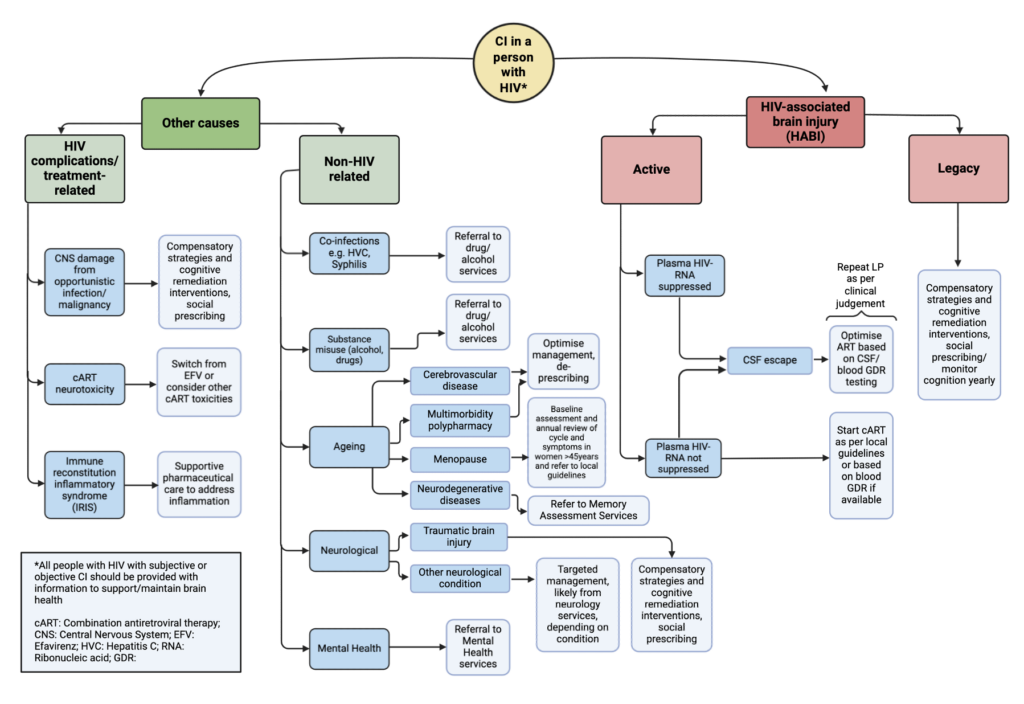Appropriate management of patients with a cognitive impairment needs to be holistic and reflect the underlying cause/s of impairment. Below we detail individual factors which may cause cognitive issues in people with HIV and how each should be managed.
Please refer to our article ‘How to assess patients with suspected cognitive impairment’ for more information on determining causation.
Factors implicated in cognitive impairment and associated management strategies/pathways

Figure from Alford et al (2024) Curr Opin Infect Dis, In Press
Monitoring cognitive impairment
The optimal frequency for monitoring cognitive function in individuals with HIV-related cognitive impairment is currently not well-defined. Generally, it is reasonable to reassess patients following an intervention aimed at improving cognition or ameliorating factors that may be contributing to cognitive impairment. It is also recommended that repeat assessment is considered where subjective decline is reported, as this can help to assess whether there is objective evidence of change. For individuals with symptomatic CSF escape, more frequent cognitive testing and CSF analysis may be warranted to track potential improvement or continued decline, which are essential for guiding treatment decisions.
Tools available for monitoring cognitive decline in this population include the Montreal Cognitive Assessment (MoCA), the Addenbrooke’s Cognitive Examnation (ACE-III) (both available in the resources section), the HIV Dementia Scale (HDS), and the International HIV Dementia Scale (IHDS). Whilst the HDS and IHDS have been developed for HIV populations, they are relatively brief and do not have parallel forms, allowing for repeated administration free from practice effects. Despite the availability of these tools, further research is needed to establish effective monitoring strategies, including optimal assessment intervals and the identification of the most suitable tools for detecting cognitive decline.
Please note these are recommendations, most are not guidelines (with the exception of HABI management), please apply clinical judgement.